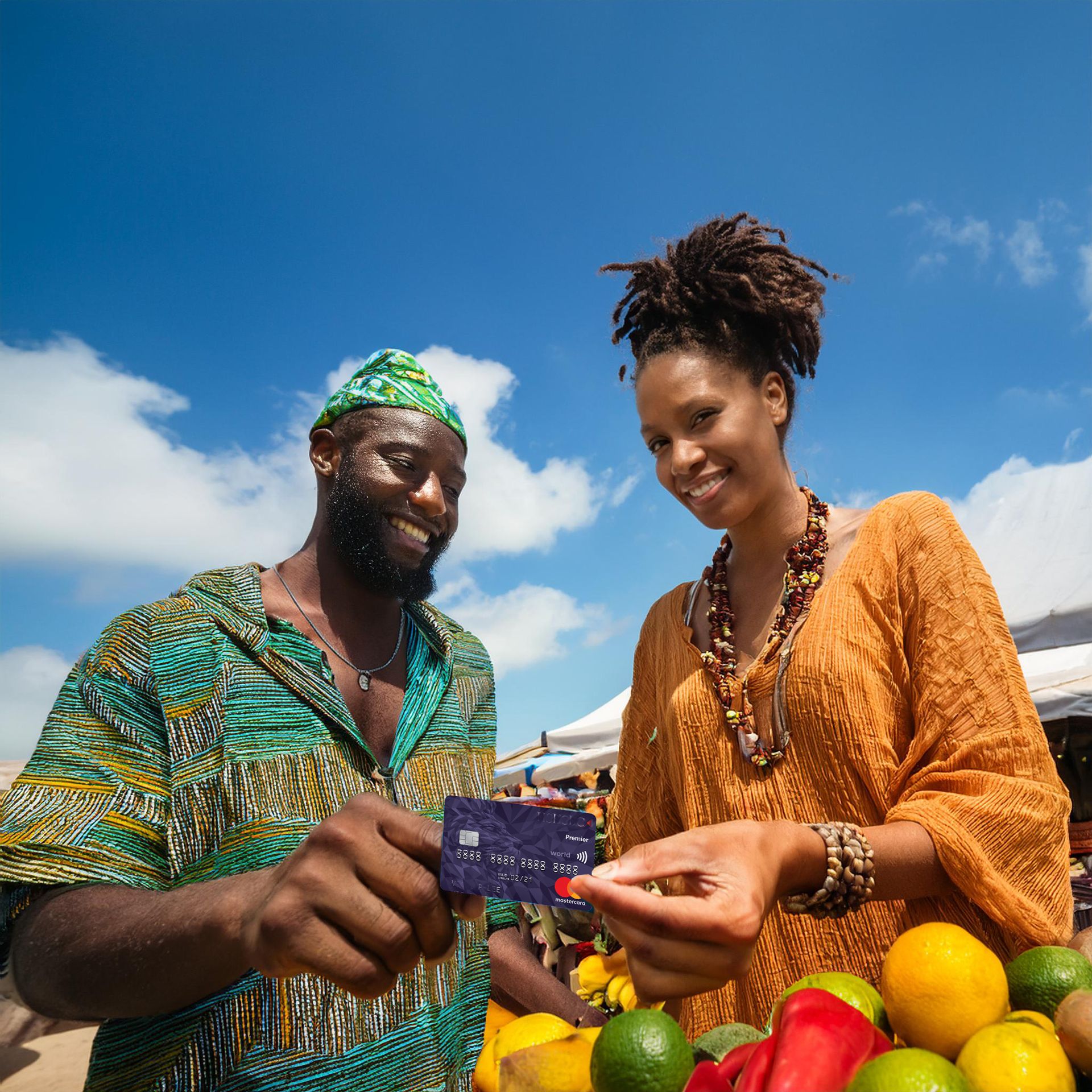Fintechs in Trinidad & Tobago:
Mastercard Paving the Way for Innovation and Financial Inclusion
Dalton Fowles
Country Manager for Jamaica, Trinidad, Barbados & Eastern Caribbean at Mastercard

LINKAGE Q4 (2024) - HUMAN FACTORS
M uch has been written recently about financial inclusion, its impact on world economies, and how financial tools and credit become facilitators of positive social and economic outcomes.
However, the latest data provided by Mastercard and Americas Market Intelligence (AMI) report, "The State of Financial Inclusion Post Covid-19", highlights the prevalent gaps in access to the financial system in Latin America and the Caribbean, where 26% of adults still do not have an account.
It is not just about having an account, but rather about using it. Usage is a challenge in many countries, where large segments of the population may have an account, but still use cash to pay for everyday necessities. Ownership of specific products such as credit cards or loans only reaches certain segments of the population in urbanised areas.
To overcome these challenges and achieve broader financial inclusion, it is essential to create a network of transactions that integrates all actors in the ecosystem, including Fintechs. Technology has the power to democratise access to financial services. Innovative partnerships and scalable solutions can transform systems and, ultimately, lives.
The rapid growth of Fintechs in the region positively impacts how people access financial services, offering new digital user experiences, lower fees, access to e-commerce, and digital financial education. The Inter-American Development Bank published a study indicating that the size of the Fintech sector in Central America and the Caribbean had doubled in just three years. By 2021, the region already had 2,482 Fintech platforms, accounting for 22.6% of all Fintechs in Latin America.
Given Trinidad & Tobago's relatively high internet penetration rate, Mastercard is leveraging this opportunity to advance digital payment services in the country, but the journey towards wider acceptance of digital payments among merchants and consumers is not without its challenges. While the benefits of digital transactions are clear—offering convenience, security, and speed—several barriers still hinder their widespread adoption in the country.
These challenges include a general lack of trust in technology and insufficient digital literacy. According to a report by Mastercard and AMI, 25% of survey respondents would prefer to open a bank account in person as opposed to via mobile or using a computer due to a lack of trust in technology.
To address these barriers, Mastercard is implementing a series of targeted initiatives aimed at fostering trust, enhancing digital literacy, and improving the overall user experience in Trinidad & Tobago.
One of the ways we are building trust is by reimagining money through new and innovative use cases for blockchain-based digital assets. By creating intelligent consumer journeys that seamlessly transition between the digital and physical worlds, we are making commerce more immersive and accessible.
This includes co-creating innovative solutions, ensuring transaction security, and designing efficient payment technologies like Contactless, Tap on Phone, and QR codes. By modernising payment flows, digitising remittances, and expanding digital payments to more commercial points of sale, Mastercard is enabling consumers, businesses, governments, and banks to transact simply, safely, and seamlessly.
Mastercard's collaboration with local institutions in Trinidad & Tobago is also crucial to expanding access to these financial services. We are working with both private and public entities to create innovative solutions that address the unique needs of the region. For instance, our partnerships with banks and Fintech companies are helping to enhance cross-border payments and improve B2B transactions, making it easier for businesses to operate across borders.
Educating businesses and consumers about the benefits and security of digital payments is another critical focus for Mastercard. To increase understanding of how Fintechs operate, Mastercard has also hosted events and workshops, elevating knowledge of their benefits in improving financial inclusion, encouraging innovation, supporting the growth of an entrepreneurial mindset, and increasing financial literacy.
Finally, trust and security are paramount in our digitalisation efforts. Mastercard has developed a comprehensive cybersecurity strategy, including solutions like NuDetect for user authentication and RiskRecon for risk analysis. Our Enterprise Security Solutions, Safety Net, and Early Fraud Detection services are all designed to protect digital transactions, ensuring that businesses and consumers can interact in the digital economy with confidence.
By continuing to adopt a multi-stakeholder approach, Mastercard is committed to creating an enabling environment for Fintechs in Trinidad and Tobago, driving economic growth and development in the region. The most significant impact is achieved when the public and private sectors collaborate. Together, we can move towards a future where everyone has access to financial security, building a more inclusive and prosperous society for all.
ABOUT THE AUTHOR

Dalton Fowles is the Country Manager for Jamaica, Trinidad, Barbados & Eastern Caribbean at Mastercard